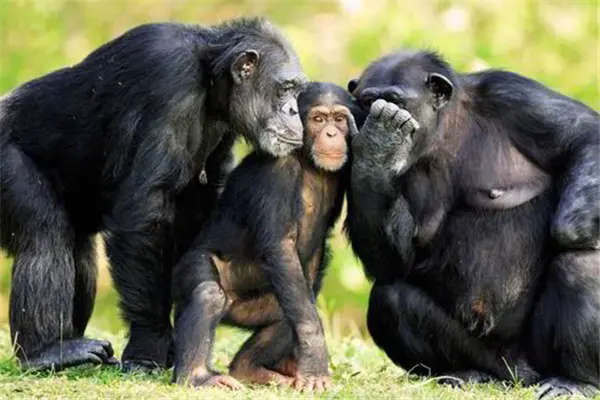Chimpanzees, one of humans' closest relatives, favor cooperation over competition, challenging the perceptions humans are unique in our ability to cooperate and chimpanzees are overly competitive, a U.S. study suggested Monday.
In the study, a group of 11 outdoor-housed chimpanzees was presented with a task in which two or three chimpanzees were required to pull an apparatus simultaneously to receive rewards.
The chimpanzees were free to choose their own cooperation partners, allowing opportunities for cooperation or freeloading.
Despite a high level of competitiveness in early sessions, overall cooperative acts were at least five times as likely as competitive acts.
The observed ratio of 5:1 is also typical of human cooperative enterprises, according to the study published in the U.S. journal Proceedings of the National Academy of Sciences.
"It turns out they are really quite good at preventing competition and favoring cooperation," said lead author Malini Suchak, a graduate student at the Yerkes National Primate Research Center at the time of the study and now an assistant professor at the Canisius College.
"In fact, given the ratio of conflict to cooperation is quite similar in humans and chimpanzees, our study shows striking similarities across species and gives another insight into human evolution," she said in a statement.
The study found chimpanzees used a variety of enforcement strategies to overcome competition, displacement and freeloading, which the researchers measured by attempted thefts of rewards.
These strategies included the chimpanzees directly protesting against others, refusing to work in the presence of a freeloader, and more dominant chimpanzees intervening to help others against freeloaders.
Such third-party punishment occurred 14 times during the 94-hour-long test sessions, primarily in response to aggression between the freeloader and the chimpanzee that was cooperatively working with others for the rewards.
"It has become a popular claim in the literature that human cooperation is unique. This is especially curious because the best ideas we have about the evolution of cooperation come straight from animal studies," said study author Frans de Waal, director of the Living Links Center at the Yerkes National Primate Research Center and professor of psychology at the Emory University.
"The natural world is full of cooperation, from ants to killer whales. Our study is the first to show that our closest relatives know very well how to discourage competition and freeloading. Cooperation wins!"
(APD)
 简体中文
简体中文

